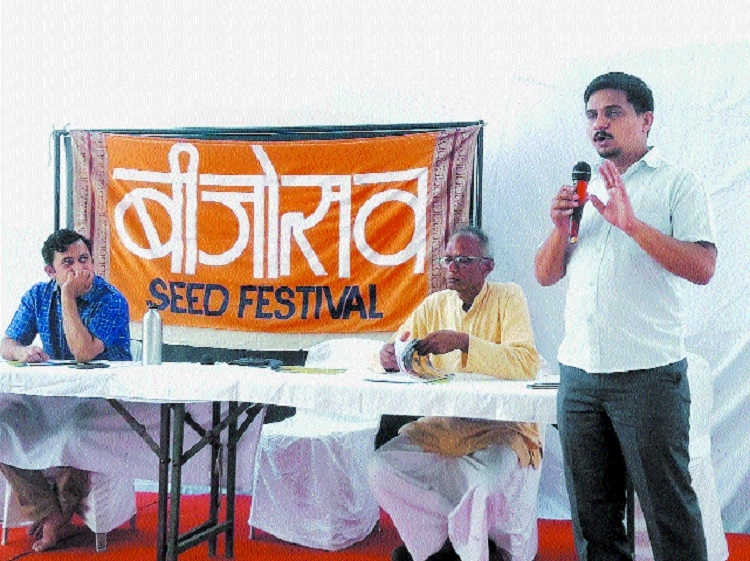‘Govt should ban pesticide instead of giving only compensations’
| Date :19-Mar-2019 |

Staff Reporter,
“Organo Phosphates is the main culprit behind farmer deaths in Yavatmal district and State Government should ban the pesticide instead of giving only compensations to farmers,” said Dr Sumedh Jaju, renowned doctor from Wardha during the concluding function of Beejotsav on Monday. Farmers impacted by organo phosphates need hospitalisation in ICU at least for 20-25 days. This puts tremendous economic pressure on the patient and his family, he added. “The expense comes to about Rs 10,000, which is compensated by the government through various schemes.
The irony is that government does not ban use of such deadly chemicals, but compensates in case the poison affects human health,” Dr Jaju stated. Dr Jaju said that more than 300 patients, mostly farmers, are treated in his hospital every year for poisoning caused due to pesticide or weedicide use. About 200 patients are those directly impacted by organo phosphates. Even after discharge from hospital the patient needs at least a month to be back to field and start working. He also drew attention of the audiences towards long-term toxicity impact of such chemicals.
He said that poisoning caused due to weedicides like Glycophosphate impacts human health in several ways. “About 15 per cent such patients admitted to hospitals do not survive,” said Dr Jaju. He gave detailed information about pesticides, insecticides and weedicides that farmers use and what are their harmful effects on human health in the short and long term. Pesticides are known to cause asthma, allergies, infertility, early puberty, hormonal imbalance among other problems. On most occasions researchers have been unable to prove direct impact of these poisonous chemicals on human health, but that does not mean that we should continue to use them indiscriminately, he added. In the second session, Dr Sachin Barbade’s delivered lecture on food culture of tribes in Maharashtra.
“Tribe’s food habit is more nutritious than ours. Many places the tribal food was found to be deficient of protein because they are now adopting urban food habit,” said Dr Barbade. Dr Barbade also talked about his ongoing work with tribal in Jharkhand where they are focusing on women members of the family to bring about nutrition awareness in families.